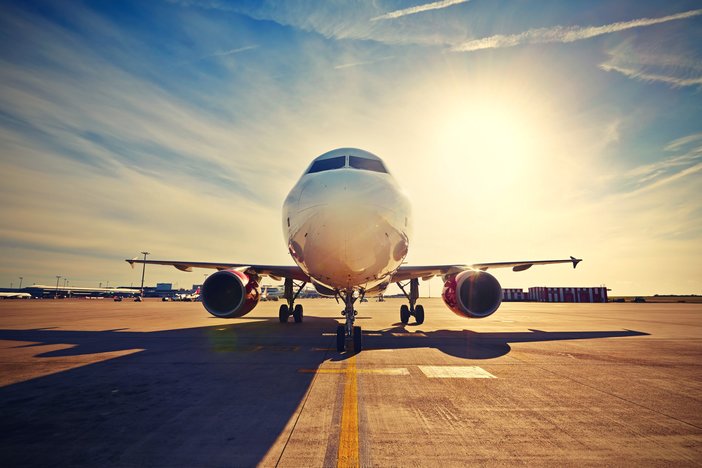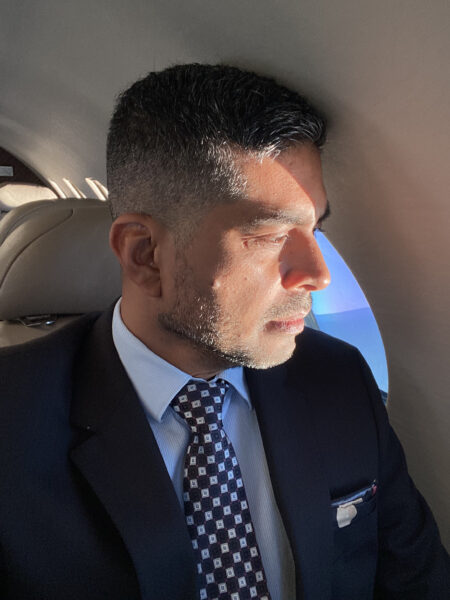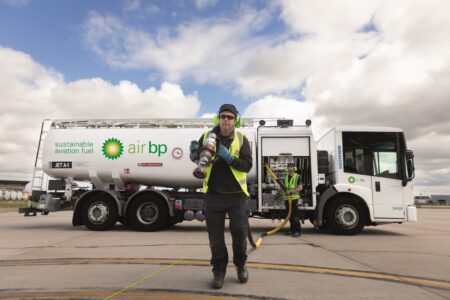Greg Charman, group environmental, social and governance (ESG) manager at Air Partner, shares his expert insights on the outlook for the year ahead.
Momentum towards sustainability in the aviation industry is growing, but significant progress must still be made. To reach viable solutions, collaboration will be key. Airlines, airports, aerospace manufacturers and air navigation service providers need to work collectively to make true headway in the right direction. However, the industry cannot do this alone. Government support will be paramount to the success of green innovation whether that be through funding, new policies or investment initiatives.
Technology will play a critical role in helping the industry to cut emissions. This includes the development of sustainable aviation fuels, more fuel-efficient aircraft and redesigning the structure and function of airspace. It is also entirely feasible that the biggest impact in helping to achieve net-zero targets will come through the development of electric aircraft as the industry moves away from fossil fuels altogether. The most significant issue to overcome concerns battery power, but the technology is moving quickly and we project that electric aircraft will have a real role to play for shorter flights within the next few years.
Offsetting and carbon capture technologies will play a key role in supplementing the reduction of carbon emissions and are expected to account for 19% of the reduction, as outlined by the International Air Transport Association. Carbon offsetting allows passengers to mitigate emissions released through flying by investing in carbon reduction projects. One way to increase the take up of carbon offsetting is through adopting an ‘opt-out’ rather than ‘opt-in’ model in which the offsetting amount is automatically added to the flight costs. The opt-out model is recommended by the UK Government’s Department of Transport and has helped us to increase the quantities of carbon being offset on our flights by 65% over the past year, enabling our customers to support with the funding of several community projects in developing countries. We are also looking to expand our sustainable offering for customers, ensuring they can make their travel more eco-friendly through choices at the time of booking, from their selection of ground transport to sustainable meal choices on-board.
However, as industry looks to tackle sustainability, it is important that the social aspect of ESG is not left behind. The issue of chronic staff shortages in the aviation industry continues to persist as the Covid-19 pandemic resulted in an industry-wide skills shortage of 2.3 million workers globally. New technologies and innovations driven by climate change will ultimately require a workforce with the knowledge and skillset to implement them, so a continued focus on key science, technology, engineering and manufacturing (STEM) roles is vital. Educational and training providers are catching up and there are now several exceptional STEM courses on offer leading to real career prospects and high-quality jobs.
Increasing diversity, equity, inclusion and belonging will also help foster a more positive training environment and help to knock down barriers in the workplace. We have implemented a variety of measures to achieve this including developing a Diversity, Equity, Inclusion and Belonging (DEIB) and Employee Advisory Panel, as well as opting for blind recruitment processes to help tackle unconscious bias, resulting in more than half of our new Broker Academy hires being women. The Broker Academy is our latest initiative designed to help develop the next generation of private jet, group charter and cargo brokers. The scheme provides recruits with three-months’ training before assigning them to a six-month placement in the private jet, group charter or cargo team, ensuring we help support the industry-wide effort to engage future generations in aviation. We have also begun a journey to become a ‘Disability Confident’ employer to create an environment and recruitment process that allows people to feel safe and comfortable in talking about disabilities. The scheme will improve how we recruit, retain, and develop workers with disabilities.
Ultimately, customer expectations have been a key driver of change in the industry. Awareness around diversity and inclusion and climate change has grown substantially and people and businesses are taking more ownership of how their actions impact the world. As we look to the year ahead, customer expectations will continue to evolve and the industry must seek feedback, listen and act accordingly. At Air Partner, we have adopted this philosophy, leading to the creation of an internal Sustainability Group, designed to help us take more responsibility. As more businesses develop clear ESG ambitions that can be achieved with the right collaborative effort and technological developments, customers, employees and partners must all be engaged in the process. The industry must also open its doors to attract new talent and create an inclusive environment to ensure the industry is fit for the future. The industry’s commitment to sustainability is encouraging and with continued investment in green initiatives, we can move closer to a net-zero future.





